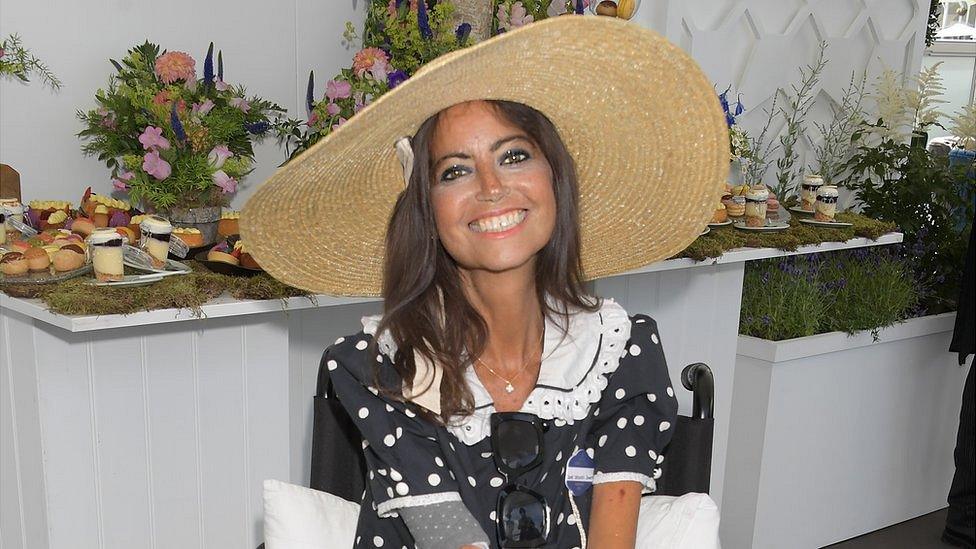Scottish experimental cancer trials receive £4m funding
- Published
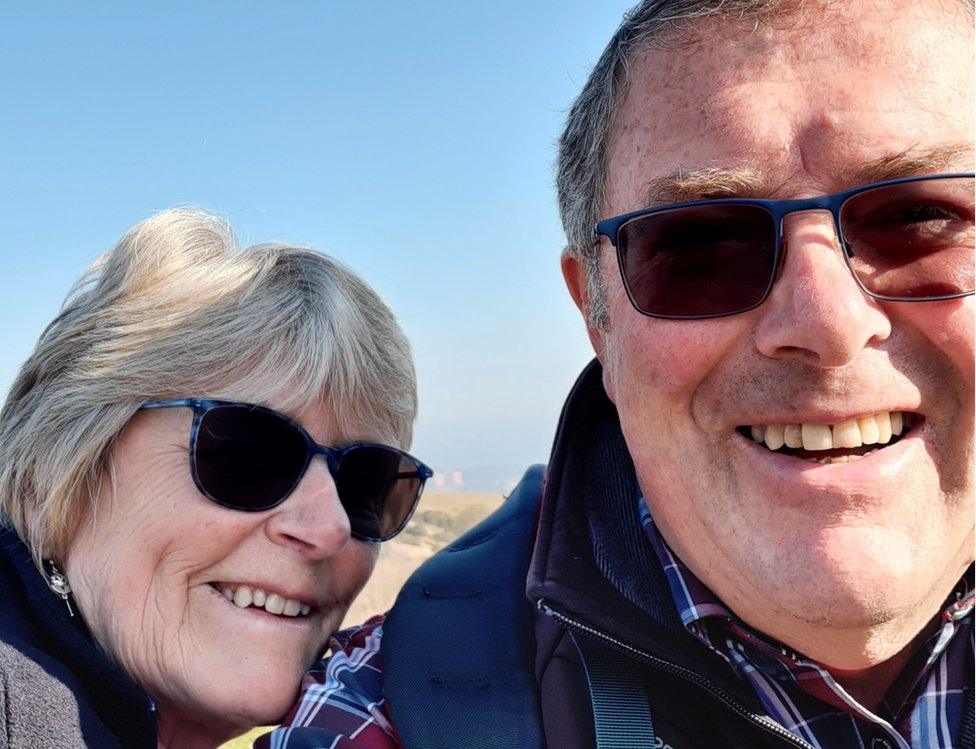
Retired headteacher Jim McCallum, pictured with his wife Margaret, said he felt 'incredibly lucky' to have been part of a medical trial
Cancer centres in Scotland are to receive £4m funding to help develop new experimental treatments.
Glasgow's Experimental Cancer Medicine Centre (ECMC) and paediatric ECMC will receive about £2.3m and Edinburgh ECMC will receive £1.8m over five years.
Cancer Research UK and the Scottish government provided funds, with a contribution from The Little Princess Trust for children's cancer treatments.
They said the money would help develop "cancer treatments of the future".
Glasgow and Edinburgh ECMCs are part of a network of 17 UK centres, external funded by Cancer Research UK, which delivers clinical trials of new treatments.
Since the network was established in 2007 about 30,000 patients have taken part in 2,100 clinical trials.
The investment has been welcomed by retired headteacher Jim McCallum, from Paisley, who was diagnosed with Non Hodgkin Lymphoma in 2017.
His lymphoma didn't respond to standard treatment, but after taking part in a cell therapy clinical trial at Glasgow ECMC in 2020 he is now free of cancer.
The new funding will allow new treatments, including immunotherapies and cell therapies, to be developed for a range of cancers, especially those that particularly affect the Scottish population.
It also aims to improve existing treatments - especially by targeting therapies more precisely to the patient's tumour - and support trials from innovative drug therapies to the latest advances in radiotherapy treatment.
ECMCs work with local NHS facilities to provide access to medical trials and treatments to help find new ways to detect, monitor and treat cancer.
Glasgow and Edinburgh ECMCs said they were "delighted" to secure the funding.
Professor Jeff Evans, who leads the Glasgow centre, said: "Thousands of patients have kindly participated in these trials through the Glasgow and Edinburgh ECMCs and this funding, in partnership with other cancer centres in Scotland and throughout the UK, will benefit people with cancer in Scotland and beyond."

'They can't find any trace of cancer now'
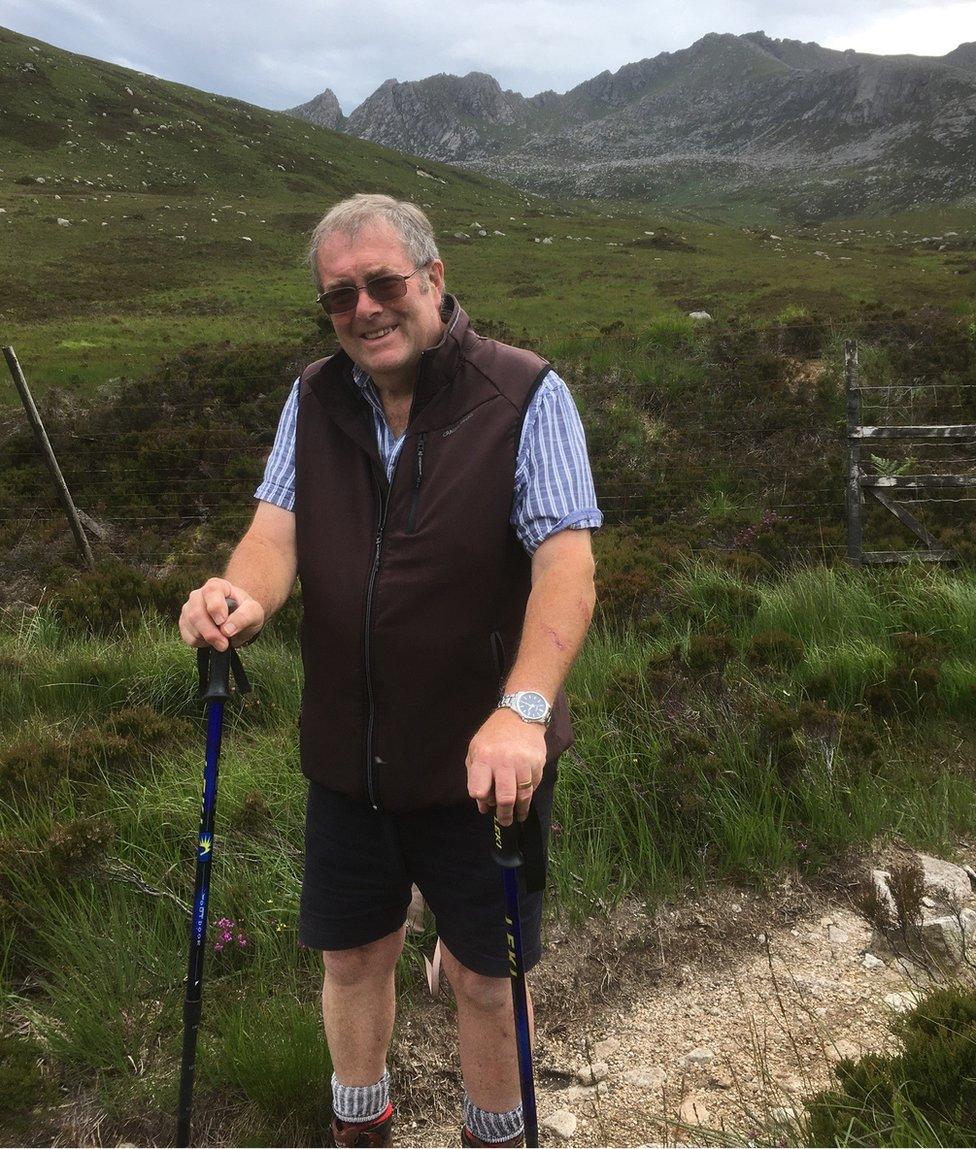
A cancer diagnosis in 2017 shook Jim McCallum "to the core".
The 76-year-old retired secondary school headteacher from Paisley visited his GP with a lump in his neck and was referred to hospital for tests.
"I think I had known but you always hope that they tell you it's just a harmless lump," he said, recalling the diagnosis of Non Hodgkin lymphoma.
"That was the worst day, being told I had cancer."
Chemotherapy treatment in 2018 was not successful - the cancer had spread.
The father of two admitted: "After that first shock of diagnosis I tried never to get too high about progress or too low about the lack of progress.
"Cancer is such an insidious disease, you can never be sure where you are with it, and you do start to wonder how many treatment options are left to you."
In 2020, just before the country was to go into Covid lockdown, he stepped forward for a clinical trial at Glasgow's ECMC and was given a new type of immunotherapy - chimeric antigen receptor T cell (CAR-T) therapy.
This involves making a change to a patient's T cells, which are part of the immune system, to better recognise and attack cancer cells. The adapted T cells are then multiplied in a laboratory and returned to the blood stream via a drip.
Jim was monitored in hospital for a week after the treatment and returned home just as the pandemic forced people to stay at home.
"I had already been in a lockdown as they had stopped visitors to the hospital including my wife Margaret," he said. "But I was incredibly lucky with the timing, being able take part in the trial before the full impact of Covid-19 struck the UK."
Since completing the trial nearly three years ago, Jim has been closely monitored by medical staff and remained cancer-free despite not taking any further treatment for the disease.
He said: "They can't find any trace of the cancer now. After the CAR T-cell therapy trial, there was only one small tumour but they gave me another treatment for that and it has also gone.
"I was just so glad they had a treatment I could try and taking part in a trial also has the potential to help others as well, it's all about gathering information."
Jim has been able to spend time with family, including his three granddaughters, playing golf and his guitar, and praised the medical staff at the hospitals where he was treated.
"I can't say just how good the hospitals have been and that is a huge element of going through cancer treatment," he said.
"I feel I have been incredibly lucky."

Cancer Research UK, which has helped develop many new cancer treatments that are used in clinical practice around the world, is hoping the ECMC funding will bring together "vast medical and scientific expertise" to take scientific discoveries from the lab into clinics for many types of cancer.
Its executive director of research and innovation, Dr Iain Foulkes, said: "The trials taking place today will give the next generation the best possible chance of beating cancer.
"Researchers will be working to find new treatments and tackle the unique challenges presented by cancers in children and young people."
Phil Brace, chief executive of the Little Princess Trust, said cancer was the leading cause of death amongst children and young people in the UK and their charity was funding research to with the hope of finding "more targeted and less toxic treatments" for youngsters.
"We've made some good progress, but we want to do so much more," he added.
- Published25 January 2023
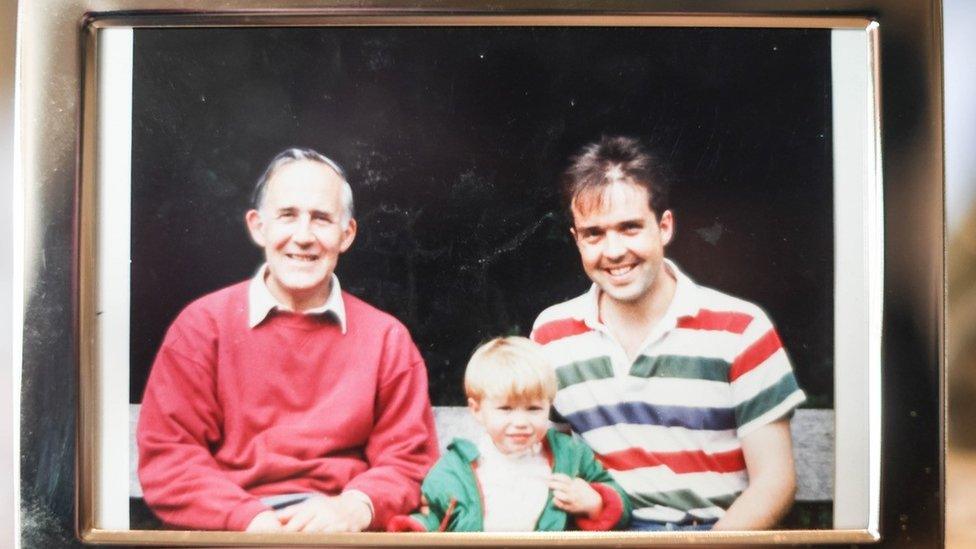
- Published7 January 2023
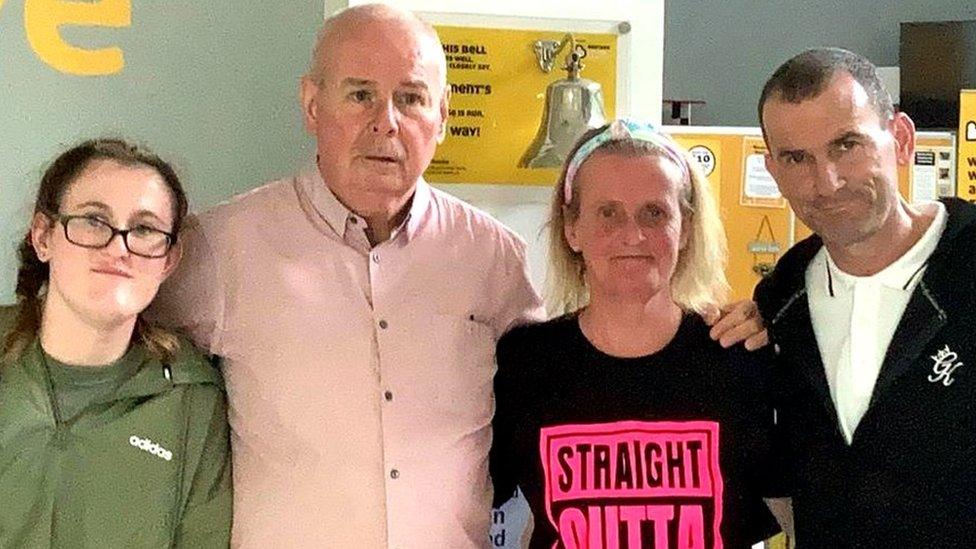
- Published19 January 2023
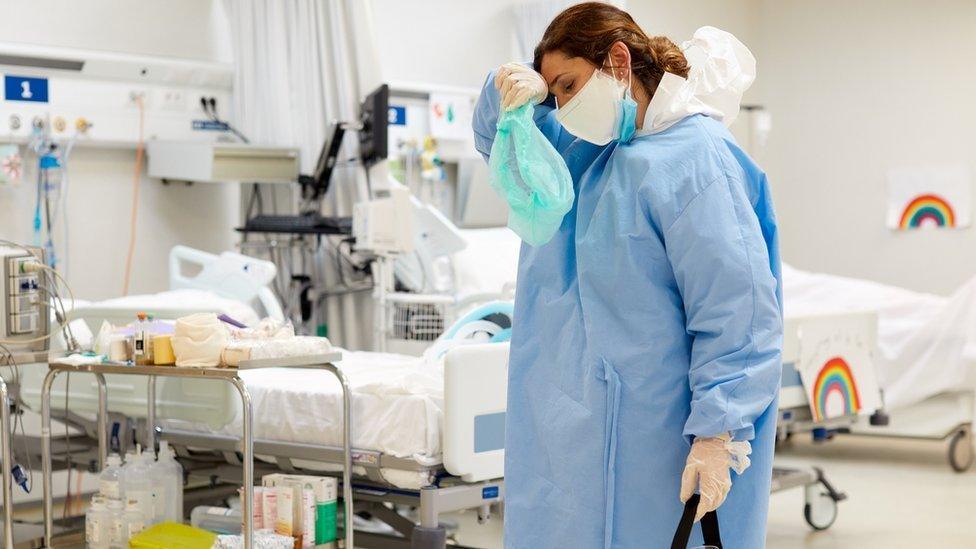
- Published17 May 2022
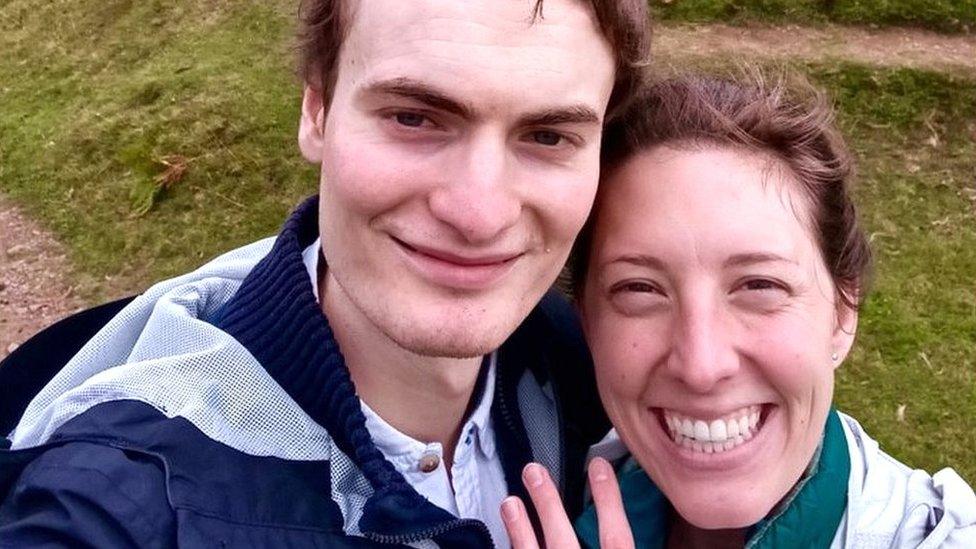
- Published29 June 2022
